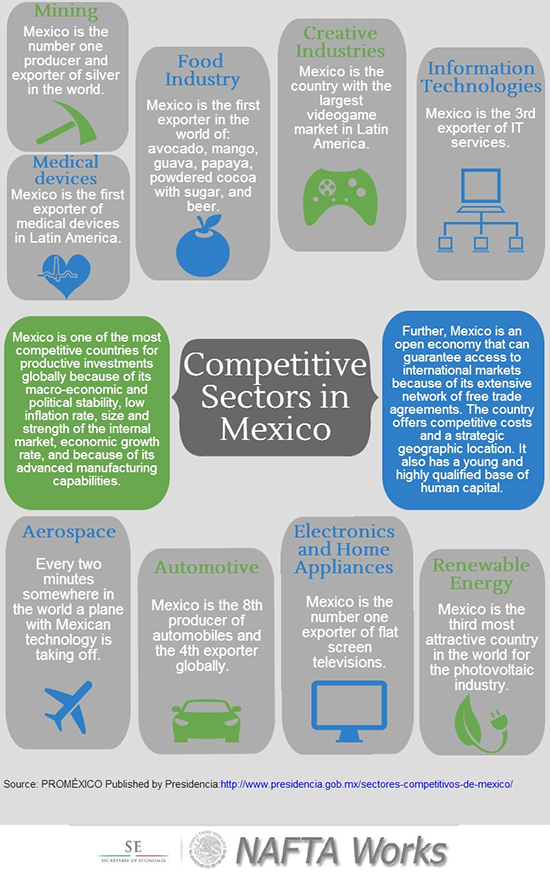Energy Reform: Powering Mexico’s Economy
On December 20, 2013, President Peña Nieto signed into law a landmark energy bill approved by the Mexican Congress. The Energy Reform amended articles 25, 27 and 28 of the Mexican Constitution with the aim to transform the country’s energy sector by opening up oil, gas, and electric energy generation to private investment and setting the general framework to provide the legal certainty required to power Mexico’s economy. On April 30, 2014, President Peña Nieto introduced to Mexico’s Congress nine new bills, as well as amendments to several existing laws, to implement the constitutional energy reform.
Mexico’s Automotive Industry: an Engine for Growth
Since the implementation of NAFTA, the automotive industry in the North American region has significantly grown and is now highly integrated, transforming its structure into an increasingly export oriented regional sector. The three NAFTA partners together exported over $134 billion in vehicles in 2013, an increase of 106% with respect to 2001.
Read More…






